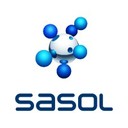Audemars Piguet
Machine Learning Engineer (SF Bay Area)
Job Description
Who we are
Ema is building the next generation AI technology to empower every employee in the enterprise to be their most creative and productive. Our proprietary tech allows enterprises to delegate most repetitive tasks to Ema, the AI employee. We are founded by ex-Google, Coinbase, Okta executives and serial entrepreneurs. We’ve raised capital from notable investors such as Accel Partners, Naspers, Section32 and a host of prominent Silicon Valley Angels including Sheryl Sandberg (Facebook/Google), Divesh Makan (Iconiq Capital), Jerry Yang (Yahoo), Dustin Moskovitz (Facebook/Asana), David Baszucki (Roblox CEO) and Gokul Rajaram (Doordash, Square, Google).
Our team is a powerhouse of talent, comprising engineers from leading tech companies like Google, Microsoft Research, Facebook, Square/Block, and Coinbase. All our team members hail from top-tier educational institutions such as Stanford, MIT, UC Berkeley, CMU and Indian Institute of Technology. We’re well funded by the top investors and angels in the world. Ema is based in Silicon Valley and Bangalore, India and is currently in stealth mode.
Who you are
We’re looking for an innovative and passionate Machine Learning Engineers to join our team. You are someone who loves solving complex problems, enjoys the challenges of working with huge data sets, and has a knack for turning theoretical concepts into practical, scalable solutions. You are a strong team player but also thrive in autonomous environments where your ideas can make a significant impact. You love utilizing machine learning techniques to push the boundaries of what is possible within the realm of Natural Language Processing, Information Retrieval and related Machine Learning technologies. Most importantly, you are excited to be part of a mission-oriented high-growth startup that can create a lasting impact.
You will:
-
Conceptualize, develop, and deploy machine learning models that underpin our NLP, retrieval, ranking, reasoning, dialog and code-generation systems.
-
Implement advanced machine learning algorithms, such as Transformer-based models, reinforcement learning, ensemble learning, and agent-based systems to continually improve the performance of our AI systems.
-
Lead the processing and analysis of large, complex datasets (structured, semi-structured, and unstructured), and use your findings to inform the development of our models.
-
Work across the complete lifecycle of ML model development, including problem definition, data exploration, feature engineering, model training, validation, and deployment.
-
Implement A/B testing and other statistical methods to validate the effectiveness of models. Ensure the integrity and robustness of ML solutions by developing automated testing and validation processes.
-
Clearly communicate the technical workings and benefits of ML models to both technical and non-technical stakeholders, facilitating understanding and adoption.
Ideally, you’d have:
-
A Master’s degree or Ph.D. in Computer Science, Machine Learning, or a related quantitative field.
-
Proven industry experience in building and deploying production-level machine learning models.
-
Deep understanding and practical experience with NLP techniques and frameworks, including training and inference of large language models.
-
Deep understanding of any of retrieval, ranking, reinforcement learning, and agent-based systems and experience in how to build them for large systems.
-
Proficiency in Python and experience with ML libraries such as TensorFlow or PyTorch.
-
Excellent skills in data processing (SQL, ETL, data warehousing) and experience working with large-scale data systems.
-
Experience with machine learning model lifecycle management tools, and an understanding of MLOps principles and best practices.
-
Familiarity with cloud platforms like GCP or Azure.
-
Familiarity with the latest industry and academic trends in machine learning and AI, and the ability to apply this knowledge to practical projects.
-
Good understanding of software development principles, data structures, and algorithms.
-
Excellent problem-solving skills, attention to detail, and a strong capacity for logical thinking.
-
The ability to work collaboratively in an extremely fast-paced, startup environment.



